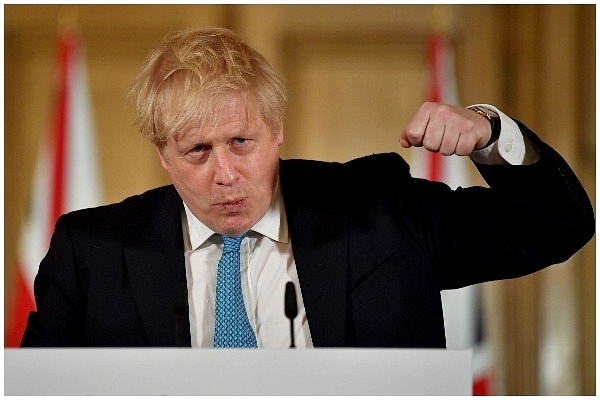
UK’s £400 Billion Economic Stimulus: The ‘Un-Conservative’ Actions Taken By The Conservatives To Fight The Coronavirus Crisis
The approach adopted by UK focusses on absorbing as much of the economic shock of the crisis as possible through concentrated and serious fiscal policy action.
Covid-19 has brought with itself a multidimensional challenge ranging from a public health emergency to an economic crisis. The trade-off is such that aggressive shutdowns aggravate the economic shock while the lack of it create a public health catastrophe.
There is no longer a choice but to pursue social distancing and encouraging people to stay at home to avoid a situation like Iran or Italy where the total cases are well beyond the state capacity.
This makes it important to put in place the necessary measures that will mitigate some of the economic implications of the disease.
Regular readers can refer to previous articles for background information on some of the measures that have been taken so far across the world.
For now, we focus on the UK and some of the measures that have been announced by the government, which are indeed, unprecedented.
The approach adopted by UK, which has resulted in the announcement of an economic stimulus estimated to be around £400 billion ($459 billion), focusses on absorbing as much of the economic shock of the crisis as possible.
The government will pay 80 per cent of the salaries of the employees that are currently not working, up to £2,500 (equivalent to the UK average wage of £30,000 a year) per worker each month to businesses. This is expected to cost around 10 billion pounds or $11.6 billion.
The objective appears to be clear, to protect as many jobs as possible and avoid a situation similar to some of the previous economic crises that the world has witnessed.
Redirecting credit will also form a key instrument for the response to Covid-19 as businesses will find the need to meet their fixed expenses should they continue in business.
The country has already considered this by allowing for interest-free loans for 12 months through the Covid business interruption scheme.
The reason why these two interventions are important are because they prevent a situation where businesses have to cut back on employment, which could result in a significant reduction in the aggregate demand post the Covid crisis.
The strategy here seems to be of front-loading the fiscal stimulus and maintaining employment at similar levels during the shutdown so that post-crisis, the economy can quickly recover.
The UK government has significantly increased its expenditure. It has also decided to take some hit on its revenue as no business has to pay any Value Added Tax (VAT) till the end of June 2020. Around £30 billion of VAT bills for the next quarter will be deferred.
“That’s a direct injection of over £30 billion of cash to businesses, equivalent to 1.5 per cent of GDP,’ Rishi Sunak, Chancellor of the Exchequer, has been quoted as saying.
The UK government has also announced that it will boost welfare payments by £7billion. The country’s Universal Credit scheme will see £1,000 added to the standard allowance under this welfare package.
Around 4 million vulnerable households in the country will benefit from this.
Among other things, Sunak has announced 1 billion pounds’ support for renters and the equivalent of statutory sick pay for those who are self-employed.
(Read: UK Chancellor Rishi Sunak Unveils A Massive $459 Billion Stimulus, Govt To Pay 80% Of Monthly Wages Up To £2500/Worker)
This increases the size of the fiscal stimulus announced by them and it illustrates the seriousness of the government to cushion their economy from what appears to be one of the biggest economic shocks in recent history.
There are fears that unless we act to mitigate the economic costs, the global economy can witness a repeat of the Great Depression, which is why leading governments have scrambled to act decisively and boldly.
The size of the stimulus announced by UK is unprecedented by any standards, especially considering that it is a conservative government which has generally been fiscally prudent.
However, the key issue here is that in the event of a huge disruption of economic activity, the deficit as a percentage of GDP will anyway increase. Therefore, acting pre-emptively appears to be a good strategy to contain the spread to other sectors.
There’s also a need to remember that we may have to re-capitalise a lot of the sectors either through tax breaks or through redirecting cheaper credit from banks. This is important, for cash-intensive businesses will find a huge disruption in their cash flow over the coming weeks.
One important lesson from the UK’s experience is that every country will invariably have to design its own fiscal intervention, but these interventions have to be bold and unprecedented.
Fiscal hawks across the globe may have to take a back seat for a while as there’s no other option but to act.
There’s an urgent need, therefore, for countries, including emerging market economies to immediately identify the fiscal space available for them and to start working out the details of different fiscal packages that may be needed over the coming weeks.